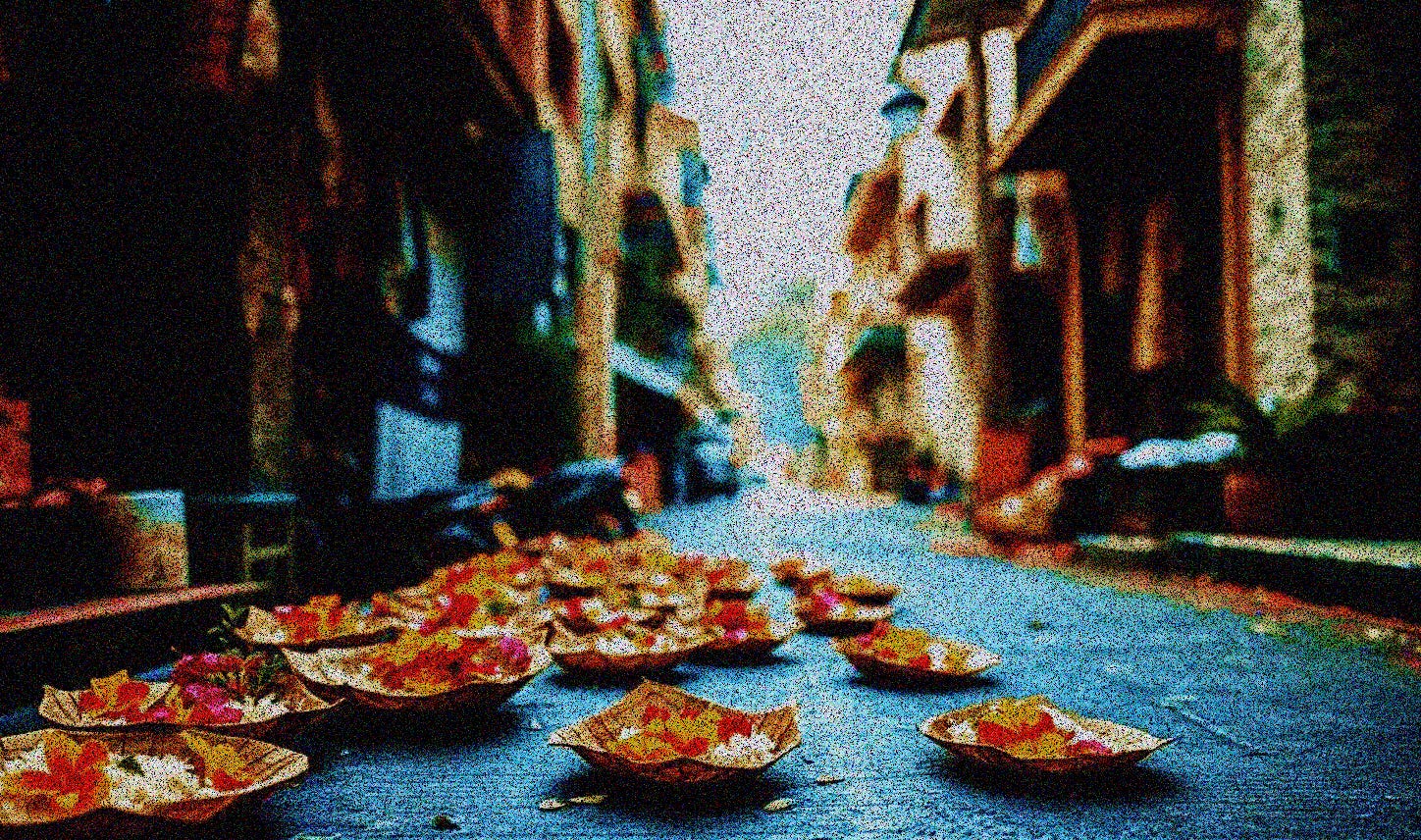Petal Logic
Each morning they return—
banana leaf folded like a quiet command,
frangipani, marigold, slivers of betel nut,
a pinch of rice set like breath between intentions.
She lights the incense with a practiced thumb,
its smoke curling upward like a soft refusal
of everything plastic, rusted, and loud.
The scooters scream past with no reverence.
A radio blares a song about forgetting.
Plastic bags drift like spirits no one claimed.
A stray dog noses the offering, then pisses.
Still, the basket waits—
tilted, wilting, holy in its persistence.
The ants arrive first,
tiny priests sipping at the rim of spilled holy water.
Then the wind scatters the petals sideways
like prayers in a language no one translates.
Then nothing.
And tomorrow,
she will place another.
Not because it works—
but because it must be done.
- February 2015 (Bali, Indonesia)One of the most striking sights for any visitor to Bali is the presence of canang sari—small, handwoven offerings placed daily on doorsteps, shrines, sidewalks, and motorbike seats. Made from palm leaf trays filled with flowers, rice, and incense, these offerings are a form of gratitude and balance, given to both gods and spirits. They’re everywhere: wilting under scooter fumes, scattered by wind, quietly replaced before sunrise the next day.
More than decorative, canang sari are acts of devotion—ephemeral prayers meant to maintain harmony between the seen and unseen worlds. Their beauty lies not only in their colour, but in their impermanence. Even when crushed underfoot, they are remade, again and again, without complaint.
This poem follows that quiet ritual. Not from a temple—but from the street.
Image by:
Reading by:







"tiny priests sipping at the rim of spilled holy water." Whatever it is that gives poets their beautiful, heightened intelligence and vision, you have it, Brock. Exquisite, in its entirety.
Lovely.
You know, reading this, I thought "this feels like Bali to me", and it is!
"tiny priests..." what a delightfully brilliant line. Exquisite.